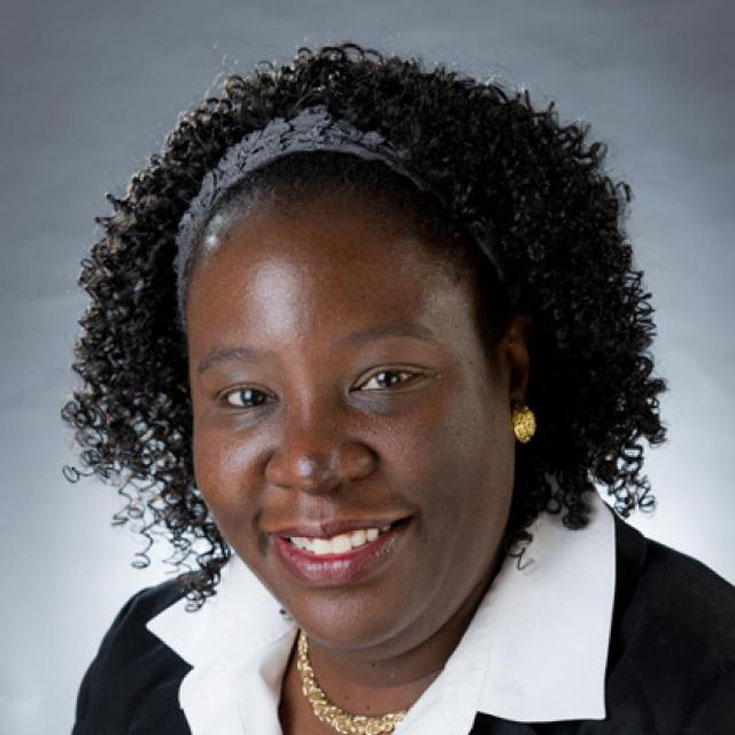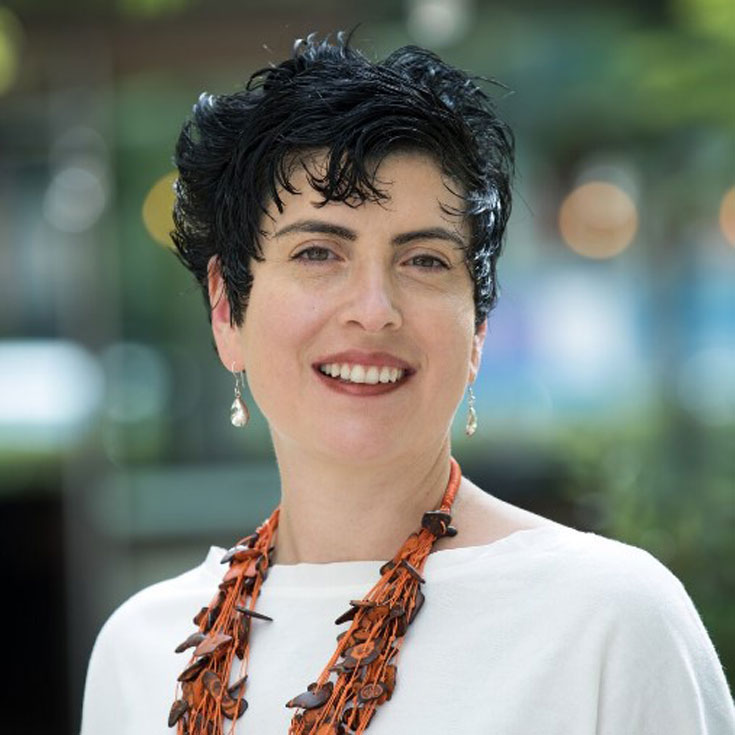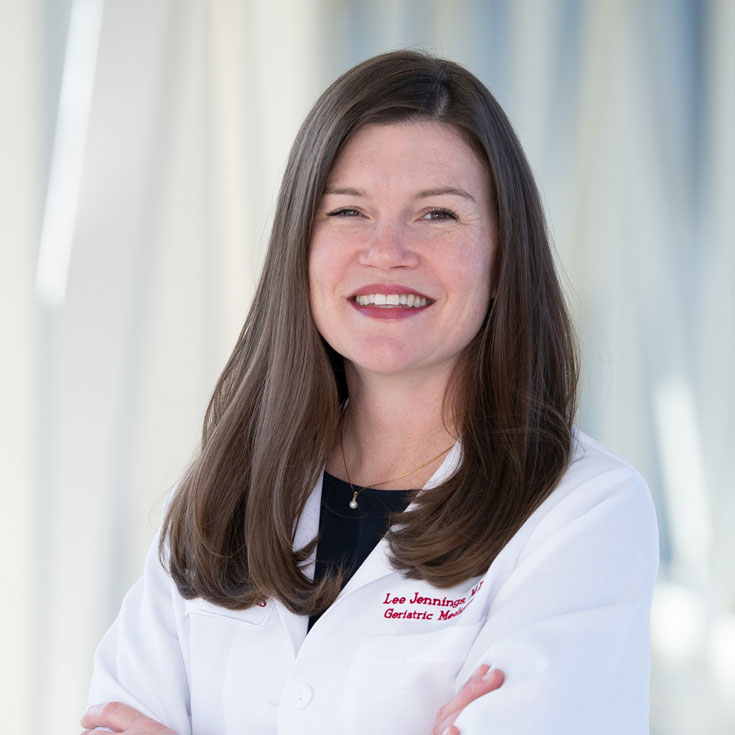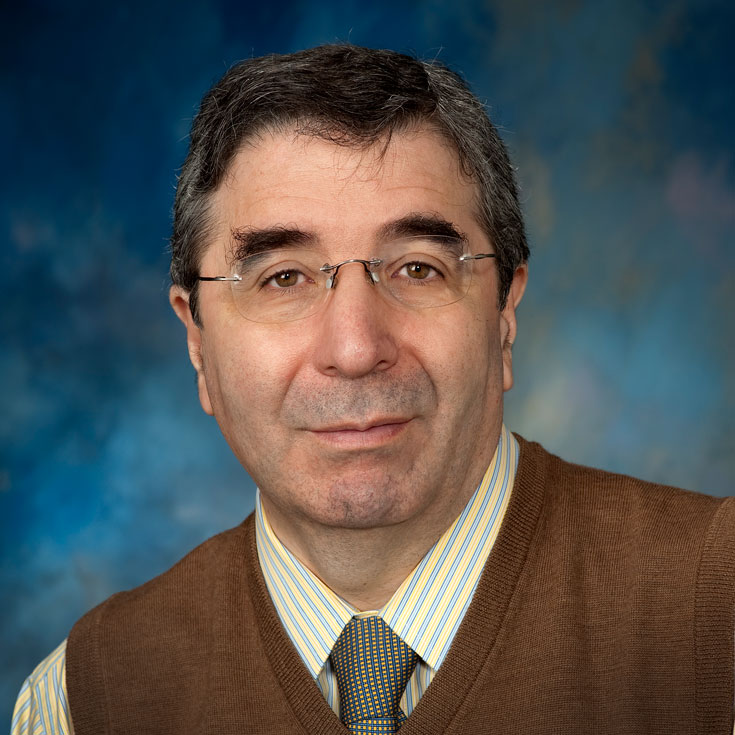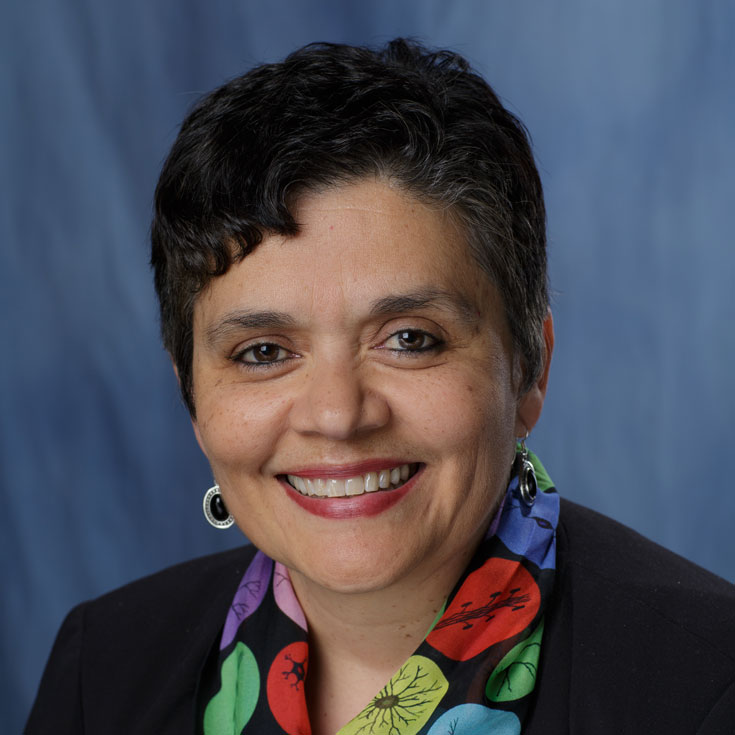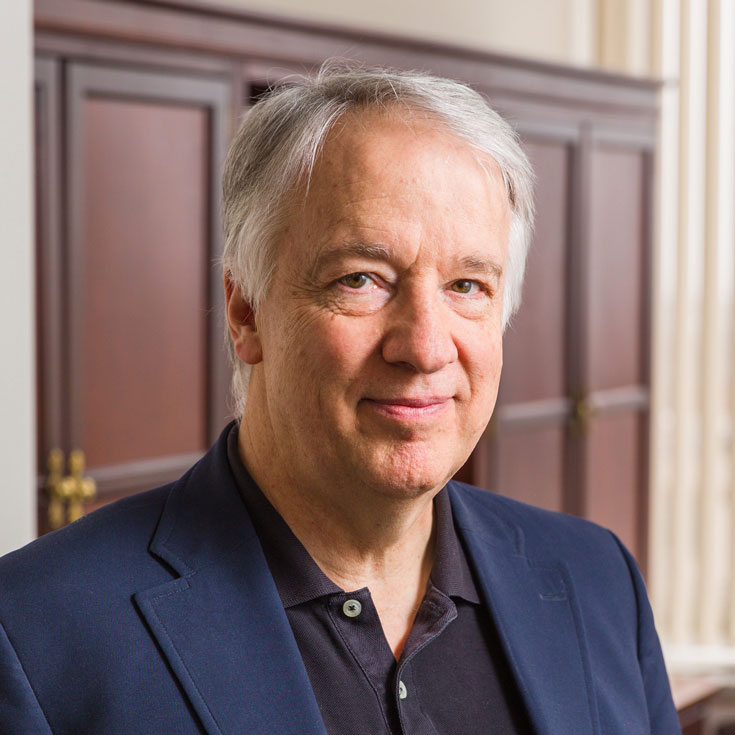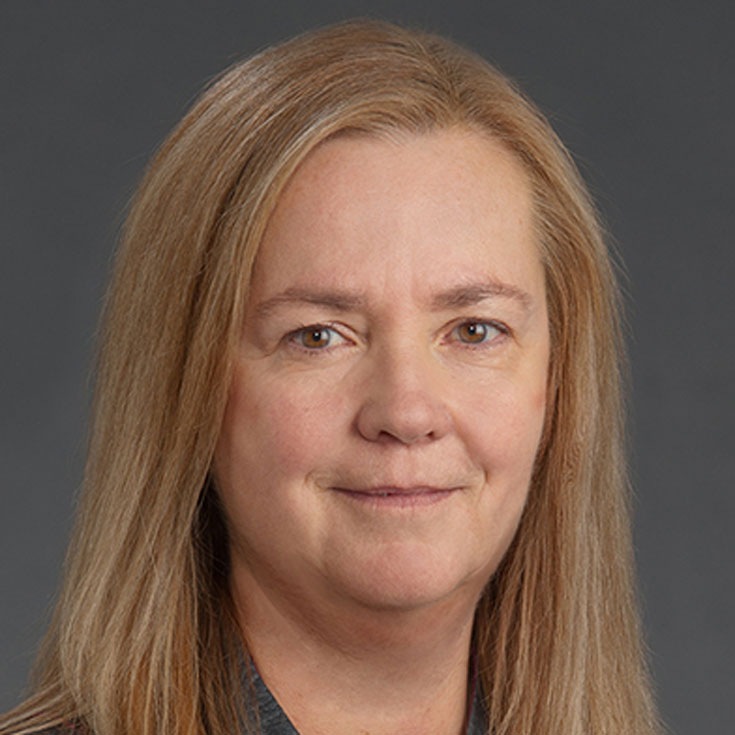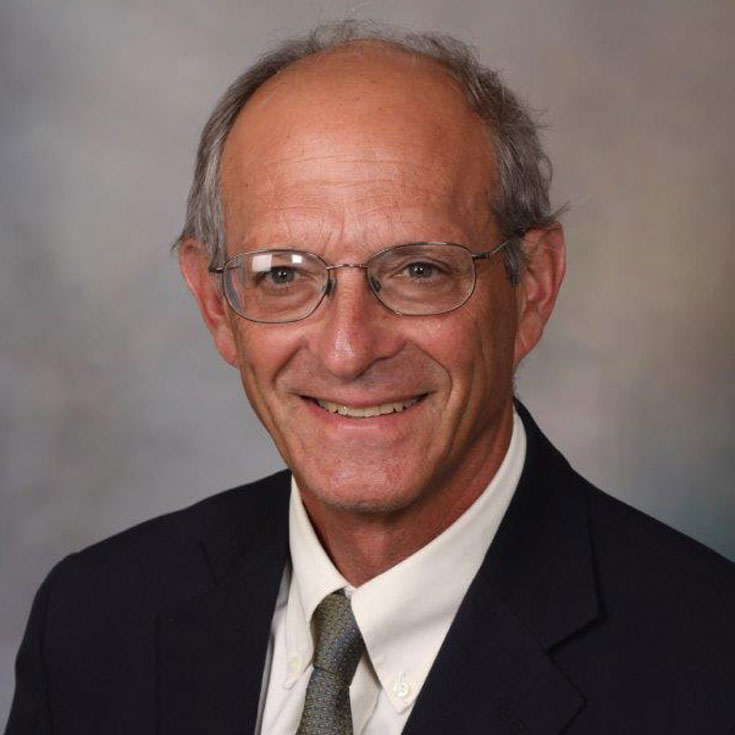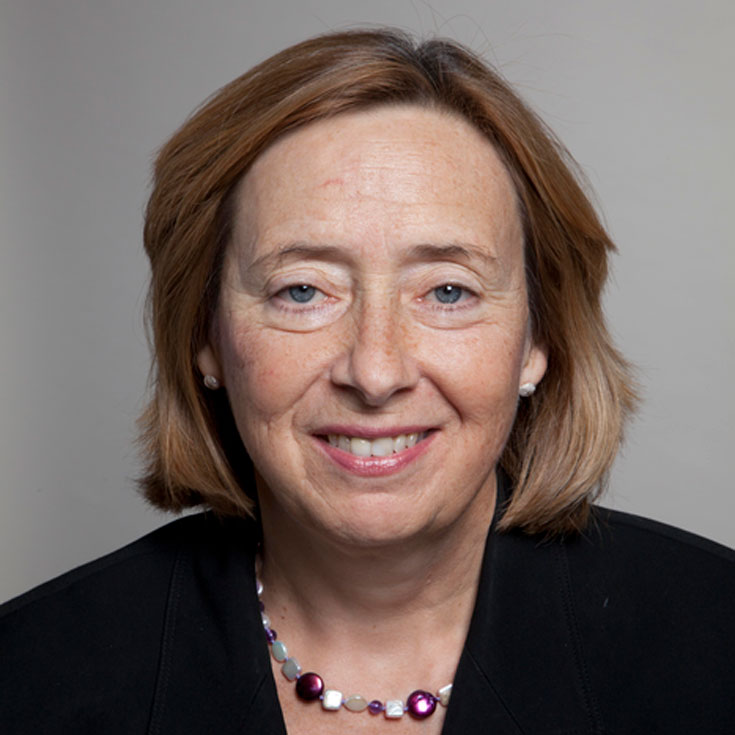Medical and Scientific Advisory Group (MSAG)
The Alzheimer's Association Medical and Scientific Advisory Group (MSAG) is composed of volunteer leaders from the Alzheimer's and dementia research community. Each of these members brings their individual perspectives and expertise to the group and serves as strategic advisors. The MSAG role was established with input and feedback from scientific volunteers, and is outlined in Knopman et al (2020) Alzheimer's & Dementia: The Journal of the Alzheimer's Association.
MSAG members bring a diversity of input to the Alzheimer’s Association for a wide range of scientific and research initiatives where the Association leads and engages. These initiatives include the Alzheimer's Association International Conference®, International Research Grant Program and Strategic Funding initiatives, Global Alzheimer's Association Interactive Network (GAAIN), International Society to Advance Alzheimer's Research and Treatment (ISTAART), Alzheimer's Association TrialMatch® clinical trial matching service, Alzheimer's Network for Treatment and Diagnostics (ALZ-NET), Association scientific journals, and diverse partnerships with researchers and research organizations around the world.
MSAG members acknowledge and declare all conflicts of interest, including financial, institutional and personal, that may impact their volunteer work for the Alzheimer's Association. The Alzheimer's Association collects reports of MSAG conflicts of interest on an annual basis and updates these at regular meetings throughout the year. MSAG members' respective institutions are responsible for managing their respective conflicts of interest.
Malú Tansey, Ph.D.
- University of Florida, Gainesville, Florida, Professor of Neuroscience, Director of the Center for Translational Research in Neurodegenerative Diseases, Investigator at the Evelyn F. and William L . McKnight Brain Institute and the Fixel Institute for Neurological Diseases
Dr. Tansey earned her bachelor's and master's degrees in biological sciences from Stanford University in Palo Alto, California, and her Ph.D. in cell regulation from the University of Texas Southwestern (UTSW) Graduate School of Biomedical Sciences in Dallas, Texas.
After post-doctoral training at Washington University in St. Louis, she spent two years in the biotechnology sector specializing in therapy development. Dr. Tansey returned to academia as an Assistant Professor of Physiology at UTSW in 2002, becoming a tenured Associate Professor in 2009. She subsequently joined the faculty of Emory University in Atlanta where she became Professor of Physiology in 2017 and was named Director of the Center for Neurodysfunction and Inflammation in the School of Medicine in 2018.
In 2019, Dr. Tansey became the Director of the Center for Translational Research in Neurodegenerative Disease and the first endowed chair of the Norman Fixel Insititute of Neurological Diseases at the University of Florida College of Medicine in Gainesville, Florida.
Dr. Tansey’s research focuses on the role of inflammation and immune system responses in brain health and the development of disease. She studies the cellular and molecular mechanisms underlying neuroinflammation in Parkinson’s disease, Alzheimer’s disease, frontotemporal dementia, amyotrophic lateral sclerosis (ALS), autism spectrum disorders and depression, with a long-term goal of developing better therapies to prevent and treat these chronic disorders.
Mary Sano, Ph.D.
- Icahn School of Medicine at Mount Sinai, New York City, N.Y.
Dr. Sano is a professor of psychiatry and the director of the Alzheimer’s Disease Research Center at the Icahn School of Medicine at Mount Sinai in New York City. She is also the director of Research and Development at the James J. Peters Veterans Administration Medical Center.
Dr. Sano is a neuropsychologist by training and has been involved in designing and conducting clinical trials for the treatment and prevention of Alzheimer's disease, mild cognitive impairment and other conditions of aging. She has been involved in maximizing research opportunities for diverse populations by developing translated outcomes, providing culturally specific normative data and reducing barriers to participation in research.
She participated in establishing a joint memory clinic with Mount Sinai and Nair Hospital in Mumbai, India. She has been a leader in dementia prevention trials and in understanding the cognitive effects of medical conditions including diabetes, kidney disease and head injury. Most recently, she has reported on remote assessment technologies in elderly populations.
She is globally recognized as evidenced by her current position as president of the International Psychogeriatric Association. She is also the recipient of a Lifetime Achievement Award from Clinical Trials in Alzheimer’s Disease (CTAD).
Lea Grinberg, M.D., Ph.D.
- University of California, San Francisco
Dr. Grinberg is trained in neuropathology and neuroanatomy. Currently, she is the John Douglas French Alzheimer’s Foundation Endowed Professor and an associate professor of neurology and pathology at the University of California, San Francisco. She also holds a tenured faculty position (WOS) at the University of Sao Paulo. In 2009, she was the recipient of the L’Oréal-UNESCO Award “For Women in Science.”
Her research focuses on neurodegenerative diseases with special emphasis on early disease stages, selective vulnerability and pathological heterogeneity. Her contributions to the field of dementia include identifying brainstem nuclei as the earliest structures affected in Alzheimer’s disease and translating these findings to diagnostic and treatment development; investigating the neurobiological basis of sleep dysfunction in neurodegenerative diseases; and developing and implementing high-resolution histology tools to validate multimodal neuroimaging findings.
Dr. Grinberg directs the Human Validation Core for the National Institutes of Health-funded U54 Center Without Walls for Tau Biology, co-directs the neurodegenerative disease brain bank at UCSF, is a Co-PI for the U54 LEADS Neuropathology Core and is a principal investigator of the Tau Consortium. She is a member of the governing board of the Brazilian Biobak for Aging Studies and the executive board of the Global Brain Health Institute. She is also the chairperson for the selection committee of the Global Brain Health Institute, UCSF Academic Senate’s Committee on Research, and the Neuromodularoty Subcortical System PIA of ISTAART.
Christopher van Dyck, M.D.
- Yale Alzheimer's Disease Research Center
Christopher H. van Dyck, M.D., is professor of Psychiatry, Neurology, and Neuroscience; director of the Alzheimer's Disease Research Unit; director, Yale Alzheimer's Disease Research Center; and director, Division of Aging and Geriatric Psychiatry
His research focuses on neuroimaging and therapeutic studies of Alzheimer’s disease and brain aging. His current imaging research utilizes positron emission tomography (PET) to study the beta-amyloid (Aβ) and tau proteins, as well as the synaptic targets SV2A and mGluR5. He and his team are examining the full spectrum of Alzheimer’s, including Alzheimer’s dementia, the prodromal condition of amnestic mild cognitive impairment (MCI), and preclinical Alzheimer’s in individuals at high familial and genetic risk.
He also has extensive experience in the conduct and leadership of therapeutic trials in AD. Since 1991, he has led or participated in approximately 90 clinical trials for Alzheimer’s, including the prodromal or preclinical stages. He currently serves on the Steering and Executive Committees and co-chairs the Protocol Evaluation Committee of the Alzheimer’s Clinical Trials Consortium (ACTC). His research accomplishments have been recognized by receipt of the 1996 Junior Investigator Award of the American Association of Geriatric Psychiatry, the 2005 Compassion and Cure Award of the Alzheimer’s Association, and the 2017 Leader in Advancing Research Award of the Alzheimer’s Association.
Cynthia Lemere, Ph.D.
- Harvard Medical School and Brigham and Women’s Hospital, Boston, Mass., Associate Professor, Department of Neurology, Center for Neurologic Diseases
Dr. Lemere received her B.A. degree in psychology and education from Mount Holyoke College, her M.S. degree in neurobiology from the State University of New York at Albany and her Ph.D. in pathology from Boston University School of Medicine.
She began working as a research technician at the Center for Neurologic Diseases (CND) in the Department of Neurology at Brigham and Women's Hospital 18 years ago. A year later, she began pursuing her Ph.D. and conducted research on the temporal pathogenesis of Alzheimer's disease in people with Down syndrome and APP transgenic mice in the laboratory of Dr. Dennis Selkoe.
Once she completed her degree, she remained at the CND as a post-doctoral fellow and instructor, studying human brain samples from patients with presenilin 1 mutations from a large family in Medellin, Colombia.
Over the past seven-eight years, much of her work has focused on developing a safe and effective amyloid-beta vaccine for the prevention or treatment of Alzheimer's disease. Her studies rely on examination of the humoral and cellular immune response as well as pathological and cognitive changes as the consequence of such vaccines in animal models.
In addition, Dr. Lemere's lab studies the role of complement protein C3 in Alzheimer's disease pathogenesis and amyloid-beta clearance in the human brain and in mouse models of Alzheimer's disease.
Lastly, in collaboration with colleagues at Peking Union Medical College, her lab is investigating the effects of L-NBP, a synthetic compound based upon an extract from Chinese celery seed, on memory and Alzheimer’s pathogenesis in mouse models of Alzheimer's disease.
Karen Bell, M.D.
- Columbia University Medical Center
Karen Bell is a professor of Neurology at Columbia University Medical Center in the Taub Institute for Research on Alzheimer's Disease and the Aging Brain and the GH Sergievsky Center. A Bronx native who graduated from New York University and the University of Pennsylvania School of Medicine, she completed internship in internal medicine at Harlem Hospital Center and neurology residency at the Neurological Institute at Columbia University, College of Physicians and Surgeons. After completing a fellowship in Behavioral Neurology, she focused her clinical and research efforts to specialize on the evaluation and treatment of neurodegenerative cognitive disorders at the Taub Institute.
As the director of the Education Core of the Alzheimer's Disease Research Center at Columbia University, she has developed physician and community education programs. She is an active member of the American Academy of Neurology and the National Medical Association, serving on various subcommittees. Dr. Bell is an external advisor to National Medical Association's Project I.M.P.A.C.T. initiative, serves on multiple NINDS Data Safety Monitoring Boards and has been a member of the Columbia University Medical Center Institutional Review Board since 2003. She was appointed to the New York State Council on Graduate Medical Education (NYSCOGME) by Governor Paterson in 2009 and chairs the NYS COGME Empire Clinical Research Investigator Program Workgroup. Dr. Bell has participated as a mentor in the Harlem Children Society science program for many years.
Laura Gitlin, Ph.D.
- Johns Hopkins University, Baltimore, MD, Professor, Department of Community-Public Health, School of Nursing; Director, Center for Innovative Care in Aging
Laura Gitlin, Ph.D., is a professor at The Johns Hopkins University in Maryland. She is an applied research sociologist, is internationally recognized in the areas of nonpharmacologic approaches in dementia care, family caregiving, functional disability, and aging in place.
Dr. Gitlin attended Temple University for her Bachelor’s degree and completed both her Master’s degree and Doctorate degree in Sociology at Purdue University.
Dr. Gitlin is a well-funded researcher, having received continuous research and training grants from both federal agencies and private foundations, including the Alzheimer’s Association and National Institutes of Health for over 24 years. She has published numerous articles in peer-review scientific publications for international audiences. Her research includes understanding adaptive processes in old age—particularly with the use of assistive devices and environmental modifications—psycho-social-environmental approaches to helping older people with physical frailty age in place, nonpharmacologic approaches to enhancing quality of life of persons with dementia and their family caregivers, mental health disparities in older African-Americans and depression treatments, and translating and implementing evidence-based interventions for family caregivers, individuals with dementia, and older adults with functional difficulties.
Dr. Gitlin holds a joint appointment in the School of Medicine Department of Psychiatry at JHU. She leads the Center for Innovative Care in Aging, which examines issues related to developing and testing health-promoting interventions for older adults and their families and implementation science. In addition, Dr. Gitlin is a member of numerous professional organizations and recently was awarded an honorary fellowship by the American Academy of Nursing.
Todd E. Golde, Ph.D., M.D.
- University of Florida, Gainesville, Fla., Director of the Center for Translational Research in Neurodegenerative Disease, Professor of Neuroscience
Bruce T. Lamb, Ph.D., Chair
- Indiana University School of Medicine, Indianapolis, Ind., Director, Stark Neurosciences Research Institute
Dr. Lamb received his bachelor’s degree from Swarthmore College and his Ph.D. from the University of Pennsylvania prior to a post-doctoral fellowship at Johns Hopkins University. In 1996, Dr. Lamb was recruited to Case Western Reserve University, where he rose from assistant to associate professor. He joined the Cleveland Clinic in 2005. In 2015, Dr. Lamb joined the Indiana University School of Medicine as director of the Stark Neurosciences Research Institute.
Dr. Lamb’s laboratory works on the basic science of Alzheimer’s disease, with a focus on: 1) genetic modifiers identified from mouse and human studies; 2) microglia and neuronal-microglial communication in the development and progression of Alzheimer’s pathologies; and 3) traumatic brain injury as an environmental modifier for the development of Alzheimer’s pathologies.
In addition, Dr. Lamb is actively involved in advocacy for increased research funding for the disease.
Jennifer J. Manly, Ph.D.
- Columbia University Medical Center, New York, NY, Taub Institute for Research on Alzheimer's Disease and the Aging Brain
Margaret Pericak-Vance, Ph.D.
- University of Miami, Miller School of Medicine, Miami, FL, Dr. John T. Macdonald Foundation Department Professor of Human Genomics and Director of the John P. Hussman Institute for Human Genomics
A founding fellow of the American College of Medical Genetics and a board-certified Ph.D. medical geneticist, Dr. Pericak-Vance is a global leader in the genetics of common diseases. She excels at the integration of genomic and statistical technologies and their application to diseases of public health importance in general, and to neurologic diseases in particular. Her more than 500 peer-reviewed papers demonstrate outstanding productivity and establish important milestones in diseases. She has a particular interest in neurogenetic diseases such as Alzheimer’s disease, amyotrophic lateral sclerosis and multiple sclerosis, and has several active studies in neurodevelopmental disorders, such as autism and Asperger disorder. Her research also is breaking ground in the genetics of eye diseases such as age-related macular degeneration, glaucoma and retinitis pigmentosa. Dr. Pericak-Vance pioneered the use of novel disease gene mapping, leading to the identification of apolipoprotein E (APOE) as the major susceptibility gene for Alzheimer disease. Her greatest contribution has been her leadership in the application of methodological innovations capitalizing on the Human Genome Project that affect not only the neurological sciences, but all of medicine.
Mary Sano, Ph.D.
- Mount Sinai School of Medicine, Bronx, N.Y.
Malú Tansey, Ph.D.
- University of Florida, Gainesville, Florida
Gerard D. Schellenberg, Ph.D.
- University of Pennsylvania, Philadelphia, Pa., Perelman School of Medicine, Departments of Pathology and Laboratory Medicine
Julie Schneider, M.D.
- Rush University Medical Center and Rush Alzheimer’s disease Center, Professor of Pathology & Neurological Sciences
Dr. Julie A. Schneider is a Professor of Pathology (Neuropathology) and Neurological Sciences at Rush University Medical Center and Rush Alzheimer’s Disease Center. She completed her Neurology training at the University of Chicago and Neuropathology training at Emory University in Atlanta and is board certified in both specialties. Dr. Schneider has fellowship training in the neuropathology of dementia, is certified in Geriatric Neurology, and has a Master’s Degree in Clinical Research with a focus in Epidemiology. She is the Associate Director and Neuropathology Core Leader of the Rush Alzheimer’s Disease Center and the senior neuropathologist for the Religious Orders Study, the Rush Memory and Aging Project, and the Rush Minority Aging Research Study.
Dr. Schneider has provided peer review for over 25 journals and is on the editorial board of 2 journals; she has provided numerous grant peer reviews for the National Institutes of Health, Alzheimer’s Association, and over 5 other funding agencies. She has participated in numerous scientific and external advisory boards for academia and industry and has presented findings from her research both nationally and internationally. Dr. Schneider has extensive experience with clinical-pathologic epidemiologic studies of aging and dementia and has over 200 peer-reviewed publications and four book chapters to her credit. She also has extensive experience collaborating with a diverse range of researchers, participating in multicenter grants and initiatives, and actively engaging in partnerships with industry to advance science.
Dr. Schneider’s research focuses on pathologic factors in the clinical expression of cognitive and motor decline in aging. Her work specifically focuses on (1) Alzheimer’s and mixed pathologies (2) vascular pathologies (3) TDP-43 and hippocampal sclerosis pathologies and their role in transitions from normality to Alzheimer’s and other dementias, and motor impairment, and (4) the use of pathologic endophenotypes to link risk factors (e.g., genetic, diet and lifestyle, neurobehavioral, and health- related), neuroimaging and peripheral biomarkers, and other biochemical/molecular factors to impairment and resilience.
Kristine Yaffe, M.D.
- University of California, San Francisco, and San Francisco Veteran’s Affairs Medical Center, Professor of Psychiatry, Neurology, and Epidemiology and Biostatistics at UCSF, Vice Chair of Clinical and Translational Research in the Department of Psychiatry, Roy and Marie Scola Endowed Chair in Psychiatry
Dr. Yaffe is dually trained in neurology and psychiatry and completed postdoctoral training in epidemiology and geriatric psychiatry, all at UCSF. Dr. Yaffe serves as the director of the UCSF Dementia Epidemiology Research Group, which conducts research relating to cognitive function and dementia in aging populations throughout the United States. A primary focus of the group is determining predictors and outcomes of cognitive decline and dementia in older adults. Dr. Yaffe is also the principal investigator (PI) of the data core for the Alzheimer’s Disease Research Center at UCSF. In addition to her positions at UCSF, Dr. Yaffe is the chief of geriatric psychiatry and the director of the Memory Disorders Clinic at the San Francisco Veteran’s Affairs Medical Center. In addition to her research and clinical work, Dr. Yaffe has greatly contributed to training fellows and faculty in clinical research, career development and mentorship. Dr. Yaffe currently holds several National Institutes of Health, Department of Defense and foundation grants. The PI’s grants examine topics including how depressive symptoms among elderly women are associated with cognitive and functional decline over the long term; cognitive decline among patients with chronic renal insufficiency; and how sleep dysfunction is associated with cognitive impairment; and predictors and outcomes of cognitive trajectories in the oldest old. Dr. Yaffe’s research has been published in more than 200 peer-reviewed research articles in such prestigious journals at JAMA, BMJ, New England Journal of Medicine, Archives of General Psychiatry and Annals of Neurology.
Kristine Yaffe, M.D.
- University of California, San Francisco, and San Francisco Veteran’s Affairs Medical Center, Professor of Psychiatry, Neurology, and Epidemiology and Biostatistics at UCSF, Vice Chair of Clinical and Translational Research in the Department of Psychiatry, Roy and Marie Scola Endowed Chair in Psychiatry
Dr. Yaffe is dually trained in neurology and psychiatry and completed postdoctoral training in epidemiology and geriatric psychiatry, all at UCSF. Dr. Yaffe serves as the director of the UCSF Dementia Epidemiology Research Group, which conducts research relating to cognitive function and dementia in aging populations throughout the United States. A primary focus of the group is determining predictors and outcomes of cognitive decline and dementia in older adults. Dr. Yaffe is also the principal investigator (PI) of the data core for the Alzheimer’s Disease Research Center at UCSF. In addition to her positions at UCSF, Dr. Yaffe is the chief of geriatric psychiatry and the director of the Memory Disorders Clinic at the San Francisco Veteran’s Affairs Medical Center. In addition to her research and clinical work, Dr. Yaffe has greatly contributed to training fellows and faculty in clinical research, career development and mentorship. Dr. Yaffe currently holds several National Institutes of Health, Department of Defense and foundation grants. The PI’s grants examine topics including how depressive symptoms among elderly women are associated with cognitive and functional decline over the long term; cognitive decline among patients with chronic renal insufficiency; and how sleep dysfunction is associated with cognitive impairment; and predictors and outcomes of cognitive trajectories in the oldest old. Dr. Yaffe’s research has been published in more than 200 peer-reviewed research articles in such prestigious journals at JAMA, BMJ, New England Journal of Medicine, Archives of General Psychiatry and Annals of Neurology.
Hui Zheng, Ph.D.
- Baylor College of Medicine, Houston, TX, Director, Huffington Center on Aging; Professor, Departments of Molecular and Human Genetics, Molecular and Cellular Biology, and Neuroscience.
Dr. Zheng is a leading authority on amyloid precursor protein (APP) and the presenilins, two proteins involved in the APP processing pathway that produces the Alzheimer's-linked fragment beta-amyloid. Working with molecular and cellular techniques and genetically engineered mice, she has conducted field-leading explorations of the mechanisms through which rare genetic changes in APP and the presenilins cause Alzheimer's. Her work has advanced understanding of how Alzheimer's disrupts cell-to-cell signaling and contributed critical insights in the effort to develop new therapies. She has served on multiple professional advisory bodies, including the Neuroscience of Aging Review Committee and the Cellular and Molecular Biology of Neurodegeneration (CMND) Study Section at the U.S. National Institutes of Health (NIH). A widely published author, she holds associate editor positions at Molecular Neurodegeneration and Neuroscience Letters.
Maria C. Carrillo, Ph.D.
- Alzheimer's Association, Chief Science Officer
As chief science officer, Maria C. Carrillo, Ph.D., sets the strategic vision for the Alzheimer’s Association global research program. Under her leadership, the Association is the world’s largest nonprofit funder of Alzheimer’s research and an internationally recognized pioneer in convening the dementia science community to accelerate the field. As a noted public speaker, Dr. Carrillo plays an instrumental role in the Association’s efforts to lobby both the public and private sectors for increased funding for the disease.
Dr. Carrillo oversees the implementation of the Association’s growing portfolio of research initiatives, including the Alzheimer’s Association International Conference® (AAIC®), the world’s largest and most influential dementia science meeting, and the Research Roundtable, which enables international scientific, industry and government leaders to work together to overcome shared obstacles in Alzheimer’s science and drug development. In addition, Carrillo manages the World Wide Alzheimer’s Disease Neuroimaging Initiative (WW-ADNI), a multi-country research effort aimed at accelerating the early detection of Alzheimer’s.
Under Dr. Carrillo’s direction, the Association’s leadership in Alzheimer’s research continues to thrive through its International Research Grant Program, which is currently investing over $320 million in more than 1,000 active best-of-field projects in 54 countries. In addition, the Association has expanded its role in advancing dementia science by becoming directly involved in research. Dr. Carrillo is a co-primary investigator for the Association-funded and led U.S. POINTER study, a lifestyle intervention trial to prevent cognitive decline and dementia.
Dr. Carrillo has published extensively on early diagnosis and biomarker standardization efforts, as well as on the global challenges to progress for research in Alzheimer’s and dementia. She is a co-author of the “Appropriate Use Criteria for Amyloid Imaging,” published by the Society of Nuclear Medicine and Molecular Imaging and the Alzheimer’s Association.
As an internationally respected Alzheimer’s expert, Dr. Carrillo has been featured in numerous international media outlets, including The New York Times, The Wall Street Journal, Time magazine and “NBC Nightly News with Lester Holt.” Dr. Carrillo sits on the governing board of the Global Brain Health Institute and is on the advisory committee for the World Health Organization Dementia Setting Priorities & Portfolio Analysis.
In honor of her extensive contributions to the advance of Alzheimer’s disease clinical trials, Dr. Carrillo received the 2020 Lifetime Achievement Award in Alzheimer's Disease Therapeutic Research from the Clinical Trials on Alzheimer’s Disease. In addition, she is the recipient of the 2018 Alumnae Award from Northwestern University, which recognizes an outstanding alumna who has brought honor to the university through significant contribution and national recognition in her field.
Dr. Carrillo earned her Ph.D. from Northwestern University’s Institute for Neuroscience and completed a postdoctoral fellowship focused on Alzheimer’s brain imaging and risk factors at Rush University Medical Center in Chicago.
Rebecca M. Edelmayer, Ph.D.
- Alzheimer's Association, Senior Director, Scientific Engagement
As senior director, Scientific Engagement, for the Alzheimer's Association, Rebecca M. Edelmayer, Ph.D., leads efforts to accelerate the organization's scientific agenda through the creation and delivery of ongoing research education. She engages with chapters across the country, ensuring that communities are informed of the global progress of dementia science and the organization's crucial role in advancing research to improve the lives of those facing Alzheimer's and all other dementia.
Dr. Edelmayer provides leadership on several of the Association's national and international initiatives in dementia science uniting researchers and clinicians on topics related to biomarker testing, drug discovery and therapeutic development. Dr. Edelmayer is a study investigator for the Association's Alzheimer's Network for Treatment and Diagnostics (ALZ-NET), an initiative to gain insight on novel FDA-approved Alzheimer's therapies. She also serves on steering committees and as an external advisory board member for various cutting-edge scientific consortia established by the National Institute on Aging to advance treatment development, including the Accelerating Medicines Partnership-Alzheimer's Disease, MODEL-AD and TREAT-AD.
Dr. Edelmayer has more than 20 years of experience as a scientist and educator, spending more than six years as a pharmacologist in the Neuroscience and Immunology Divisions at Abbott and AbbVie. She has lectured, published and led collaborations in areas of neurodegenerative disease, neurophysiology and pain neurobiology. She completed her Ph.D. and postdoctoral training in medical pharmacology at the University of Arizona College of Medicine. Dr. Edelmayer holds a bachelor's degree in neuroscience from the University of Pittsburgh, where she also completed a National Institute of Mental Health research fellowship.
Keith N. Fargo, Ph.D.
- Alzheimer's Association, Director of Scientific Programs and Outreach
Keith N. Fargo, Ph.D., is director of Scientific Programs & Outreach at the Alzheimer’s Association. He leads research programs and initiatives to accelerate the Association’s vision of a world without Alzheimer’s and all other dementia.
A key member of the Scientific Engagement team, Dr. Fargo works with all 75 Association chapters, media and donors to grow understanding of the Association’s role in accelerating Alzheimer’s research and share scientific updates. He is responsible for overseeing the data reported in the Association’s annual Alzheimer’s Disease Facts and Figures, the definitive compilation of national statistics and information conveying the impact of Alzheimer's and other dementias on individuals, families, government and the nation's health care system.
Dr. Fargo directs the Association’s efforts to build participation in Alzheimer’s disease research studies as a critical component of advancement in the field. He manages the Association’s role in recruiting participants for the Longitudinal Early-Onset Alzheimer’s Disease Study (LEADS), the world’s largest study of early-onset Alzheimer’s disease and how it compares to the more common late-onset Alzheimer’s disease. Dr. Fargo also ensures the quality, responsiveness and promotion of Alzheimer’s Association TrialMatch®, a free clinical studies matching service that connects individuals with Alzheimer's, caregivers and healthy volunteers to hundreds of current studies.
As an Association spokesperson, Dr. Fargo addresses emerging Alzheimer’s disease research and has been quoted in a variety of outlets, including ABCNews.go.com, CNNnews.com, TIME magazine and Wired magazine.
Dr. Fargo received his Ph.D. from Indiana University and completed a postdoctoral fellowship at Loyola University Stritch School of Medicine. Before joining the Alzheimer’s Association, Dr. Fargo held positions as a research scientist at the Edward Hines, Jr. VA Hospital Rehabilitation Research & Development Program and an assistant research professor at the Loyola University Chicago Department of Molecular Pharmacology & Therapeutics.
James A. Hendrix, Ph.D.
- Alzheimer's Association, Director, Global Science Initiatives, Medical and Scientific Relations
As a member of Medical and Scientific Relations Division, Dr. Hendrix provides leadership on specific domestic and international efforts to advance the science agenda for the division. Critical elements of his role include managing industry consortia such as the Alzheimer’s Association Research Roundtable, leading the Global Biomarker Standardization Consortium, and assisting with the coordination of National Alzheimer’s Plan efforts on behalf of Medical and Scientific Relations. Dr. Hendrix earned his Ph.D. degree from Colorado State University, where he also completed a postdoctoral fellowship in organic chemistry. Before joining the Alzheimer’s Association, Dr. Hendrix was a pharmaceutical scientist with a focus on medicinal chemistry and drug discovery for central nervous system (CNS) diseases. Dr. Hendrix spent 18 years at Sanofi-Aventis and predecessor companies, where he rose to the level of Senior Director, U.S. Site Head for CNS Research. During his tenure at Sanofi-Aventis, Dr. Hendrix led teams and groups that advanced two compounds into the clinic (to date) and 13 compounds into pre-clinical development. These teams and groups also identified 23 chemical series for compound optimization. Dr. Hendrix spent 2 years in the biotechnology industry with various companies including Oligomerix, whose research focuses on tau-based therapies for the treatment of Alzheimer’s disease. Dr. Hendrix is a co-author on numerous publications and patents focused on treatments for CNS diseases.
Claire Sexton, DPhil
- Alzheimer's Association, Senior Director of Scientific Programs and Outreach
Claire Sexton, DPhil, is senior director, Scientific Programs and Outreach at the Alzheimer’s Association. In this role, she leads research programs and initiatives to accelerate the Association’s scientific agenda.
Dr. Sexton works with a committee of expert researchers to develop scientific programming for the Alzheimer’s Association International Conference® (AAIC®), the largest and most influential international meeting dedicated to advancing dementia science. Annually, AAIC offers over 2,900 posters and more than 600 podium presentations on basic science, risk factors, diagnosis, causes, risk factors, and potential methods of treatment and prevention to thousands of the world’s leading dementia researchers.
Under Dr. Sexton’s leadership, the Association has significantly expanded its suite of scientific meetings to provide accessible education and networking opportunities, including the AAIC Advancements, AAIC Satellite Symposia and AAIC Neuroscience Next series. She is responsible for leading conference programming, including speakers, poster sessions and opportunities to foster collaboration.
Dr. Sexton oversees strategy for the Alzheimer's Association International Society to Advance Alzheimer's Research and Treatment (ISTAART), an inclusive global network of scientists, clinicians and dementia professionals. ISTAART provides opportunities for member engagement and education, including Professional Interest Areas (PIAs), networking sessions, informative webinars and more.
As an expert in the field, Dr. Sexton delivers presentations to audiences around the country on the Association’s role in scientific advancements and the overall state of Alzheimer’s and dementia research. She has been interviewed by and quoted in various outlets including The Washington Post, USA Today and CNN.
Dr. Sexton received her doctoral degree in psychiatry from the University of Oxford, and she holds a bachelor’s degree in neuroscience from the University of Manchester. Prior to joining the Association, Dr. Sexton served as an Atlantic Fellow for Equity in Brain Health at the Global Brain Health Institute, where her research focused on modifiable factors associated with risk for Alzheimer’s and other dementias.
Heather M. Snyder, Ph.D.
- Alzheimer's Association, Vice President of Medical and Scientific Relations
Heather M. Snyder, Ph.D., is vice president, Medical & Scientific Relations at the Alzheimer’s Association. In this role, she oversees Association funding initiatives that accelerate innovative Alzheimer’s and dementia research and provides opportunities for the global dementia community to connect and collaborate.
Dr. Snyder leads the Association’s International Research Grant Program and other strategic funding initiatives that accelerate promising investigations into our understanding of Alzheimer's and dementia. As the world’s largest nonprofit funder of Alzheimer's research, the Association is currently investing more than $360 million in over 1,000 active best-of-field projects in 53 countries, spanning six continents.
As part of the Association's funding portfolio, Dr. Snyder works closely with the Part the Cloud program, advancing innovative approaches for potential therapies into phase 1 and phase 2 clinical studies. Dr. Snyder has also been instrumental in advancing programs to further explore sex and gender-based differences in disease vulnerability as part of a larger initiative aimed to understand how these biological and genetic factors may shape disease development and progression in women.
Dr. Snyder provides leadership on several of the Association’s cutting-edge scientific initiatives. To increase knowledge of prevention and risk reduction, she serves on the executive team for the U.S. Study to Protect Brain Health Through Lifestyle Intervention to Reduce Risk (U.S. POINTER). Dr. Snyder works with other global leaders on the Association’s International Cohort Study of Chronic Neurological Sequelae of SARS-CoV-2 to better understand the impact of COVID on the brain, including factors that may contribute to Alzheimer’s and other dementia. She is also a study team investigator for the development of the Alzheimer’s Network for Treatment and Diagnostics (ALZ-NET), an initiative to gain insight on FDA-approved novel Alzheimer’s therapies.
Dr. Snyder is the chair of the Department of Defense Congressionally Directed Medical Research Programs for Alzheimer's Disease. She also serves on the Research Committee for the American Heart Association and as the immediate past chair of the Health Research Alliance Board of Directors.
An expert in the field, Dr. Snyder has been featured in numerous TV interviews and print and online news articles, including The New York Times, The Washington Post and The Wall Street Journal.
She holds a Ph.D. in molecular biology from Loyola University Chicago Stritch School of Medicine and a bachelor's degree in biology and religious studies from the University of Virginia.
William H. Thies, Ph.D.
- Alzheimer's Association, Senior Scientist in Residence
Dr. Thies is the Alzheimer’s Association senior scientist in residence. Dr. Thies was formerly the Association’s chief science officer overseeing the world’s largest private, nonprofit Alzheimer’s disease research grants program; during his tenure, the organization’s annual grant budget more than doubled. Currently, the Alzheimer’s Association is investing over $208 million in 590 active best-of-field projects in 31 countries.
Dr. Thies was instrumental in bringing the Alzheimer’s Association International Conference® (AAIC®) — the largest and most influential international meeting of Alzheimer’s and dementia researchers — under the umbrella of Association activities. In addition, Dr. Thies played a key role in launching the peer-reviewed journal Alzheimer’s & Dementia®: The Journal of the Alzheimer’s Association and the Alzheimer’s Association Research Roundtable, a unique forum where industry leaders and top scientists from around the world discuss key areas of Alzheimer's science.
Before joining the Alzheimer’s Association, Dr. Thies was a director and senior scientist at the American Heart Association. He previously held faculty positions at Indiana University and the University of Pittsburgh.
Christopher Weber, Ph.D.
- Alzheimer's Association, Director of Global Science Initiatives
Dr. Weber, director of Global Science Initiatives, oversees efforts to advance the scientific agenda of the Alzheimer’s Association, a global leader in advancing Alzheimer’s research. With over 20 years of clinical research experience, Dr. Weber is responsible for communicating the global research landscape of Alzheimer’s and dementia, including the breadth and reach of the Association’s research programs, and the critical need for increased research funding from the public and private sectors.
Dr. Weber directs Association initiatives that convene leaders from across the field to develop, expand and increase the success rate of Alzheimer’s diagnostic tools and drugs to treat and prevent the disease. He manages the Alzheimer’s Association Research Roundtable, a platform that enables international scientific, industry and government leaders to overcome shared obstacles in Alzheimer’s science and drug development. He also oversees the Global Biomarker Standardization Consortium (GBSC), an initiative that unites key researchers and clinicians with industry, regulatory and government leaders to achieve consensus on the best ways to standardize and validate biomarker tests for use in clinical practices worldwide.
Previously, Dr. Weber served as a clinical scientist with MedAvante-ProPhase, where he led global management of clinical trials in Alzheimer's, Parkinson's and sleep-related disorders. A noted expert in the field, Dr. Weber has given numerous guest lectures and has presented his work at leading dementia science conferences, including the Alzheimer's Association International Conference® (AAIC®) and the Clinical Trials on Alzheimer's Disease Conference (CTAD).
Dr. Weber received his doctorate in clinical psychology from the Illinois Institute of Technology. He holds a master’s degree in kinesiology from the University of Illinois at Chicago and a bachelor's degree in psychology from the University of Wisconsin-Green Bay.
Percy Griffin, Ph.D.
- University of Pittsburgh, Pittsburgh, P.A.
Percy Griffin, Ph.D., is director, Scientific Engagement for the Alzheimer’s Association, where he leads efforts to accelerate the organization’s scientific agenda through the creation and delivery of ongoing research education. He engages with more than 70 Association chapters across the country, informing staff and the public of scientific initiatives and the organization’s crucial role in advancing research to improve the lives of all those facing Alzheimer’s and other dementias.
Prior to joining the Association, Dr. Griffin held a number of roles that honed his expertise in research and scientific communication. Most recently, he was a strategic analyst for Purohit Navigation, where he conducted and analyzed research for pharmaceutical clients. He also served as a consultant for the Biotechnology and Life Sciences Advising Group and as a scientific editor and illustrator for InPrint, a publication editing service at Washington University in St. Louis.
As a researcher, Dr. Griffin has led independent translational projects in Parkinson’s and Alzheimer’s disease focused on protein degradation and neuroimmunology, in addition to research on the role of proteostasis in Parkinson's disease pathogenesis and organic chemistry synthesis. He is a co-author of several papers, including “Circadian clock protein Rev-erba regulates neuroinflammation,” published in the journal Proceedings of the National Academy of Sciences of the United States of America (PNAS).
Dr. Griffin holds a doctorate in molecular cell biology from Washington University in St. Louis, a master’s degree in pharmacology from the University of Minnesota Medical School and a bachelor’s degree in biology and chemistry from Macalester College. During his graduate studies, Dr. Griffin participated in the optional Entrepreneurship for Biomedicine Research Training Program and earned a credential in Science Communication. He is a recipient of the Graduate Research Fellowship from the National Science Foundation and the Neuroscience Scholars Program Fellowship from the Society for Neuroscience.
Oscar Lopez, M.D.
- University of Pittsburgh, Pittsburgh, Pennsylvania
Dr. Lopez is professor of Neurology, Psychiatry and Clinical and Translational Sciences, the Levidow-Pittsburgh Foundation Endowed Chair in Alzheimer’s Disease and Dementia Disorders, and chief of the Cognitive and Behavioral Neurology Division. In addition, he is currently the director of the University of Pittsburgh Alzheimer’s Disease Research Center.
His primary research interest has focused on the distribution (incidence and prevalence), behavioral symptoms, risks and long-term outcomes of dementia, especially Alzheimer’s disease. Dr. Lopez has conducted large-scale studies in the clinical diagnosis of Alzheimer’s diseaseand vascular dementia and multiple studies on the refinement of the clinical criteria for Alzheimer’s disease and other dementias.
In addition, he has conducted large-scale studiesin the clinical diagnosis of mild cognitive impairment (MCI) and is co-author of the 2017 American Academy of Neurology Practice Guidelines for MCI. Dr. Lopez is currently conducting studies, as principal investigator and co-investigator, of the factors that modulate the transition from normal to MCI and to dementia in relationship to cerebral amyloid deposition.
Dr. Lopez created The Brain Training and Exercise (BRiTE) Wellness Program, a novel integrated, non-pharmacological, multimodal program to promote brain healthin cognitively impaired individuals. It incorporates a model of access to non-pharmacological interventions to individuals in the greater Pittsburgh community who would otherwise not be able to participate in such a program due to either limited finances or the need to continue working past retirement age.
David Knopman, M.D.
- Mayo Clinic, Rochester, Minnesota
Dr. Knopman is a clinical neurologist involved in research in late-life cognitive disorders, such as mild cognitive impairment and dementia. Hisspecific interests are in the very early stages of Alzheimer's disease, in cognitive impairment due to stroke (cerebrovascular disease) and in cognitive impairment due to frontotemporal degeneration. He is involved in epidemiology, clinical trials and diagnostic studies of these disorders.
Dr. Knopman's primary role is as a clinician, and he sees patients with various cognitive disorders nearly every day. Goals of his research are, first, to improve diagnostic accuracy and, second, to find better treatments for patients with Alzheimer's disease, frontotemporal degeneration and cerebrovascular cognitive disorders.
In addition, Dr. Knopman served as the chair for the Alzheimer’s Association Medical and Scientific Advisory Group, was the former chair for the Medical Advisory Council of the Association for Frontotemporal Degeneration, and served as deputy editor for Neurology from 2009-2016.
Suzanne Craft, Ph.D.
- Wake Forest University
Dr. Craft joined the faculty at Wake Forest in 2012 as professor of Medicine. Dr. Craft is a founding director of the National Institute on Aging (NIA)-funded Wake Forest Alzheimer’s Disease Research Center. Dr. Craft has served as a member of the Alzheimer’s Association Medicaland Scientific Advisory Group, the NIA Board of Scientific Counselors, and the Executive Committee of the Alzheimer’s Clinical Trial Consortium.
Dr. Craft’s research program investigates the role of metabolic disorders in the development of Alzheimer’s disease, through translational studies and innovative clinical trials of pharmacologic and dietary intervention to treat or prevent Alzheimer’s disease.She has received a prestigious Zenith Award from the Alzheimer’s Association and a National Institute of Health MERIT award for research excellence.
She led a groundbreaking multisite trial of intranasal insulin for the treatment of Alzheimer’s disease that was funded by the National Alzheimer’s Project Act. This study is being followed up by Dr. Craft’s newly funded PTC award titled “A Phase IIA Trial of Empagliflozin and Intranasal Insulin for MCI/AD,” which is a phase IIA clinical trial looking at safety, feasibility and dosing ofa combination of insulin andmetabolism-targeting drugs in individuals with mild cognitive impairment or Alzheimer’s disease.

